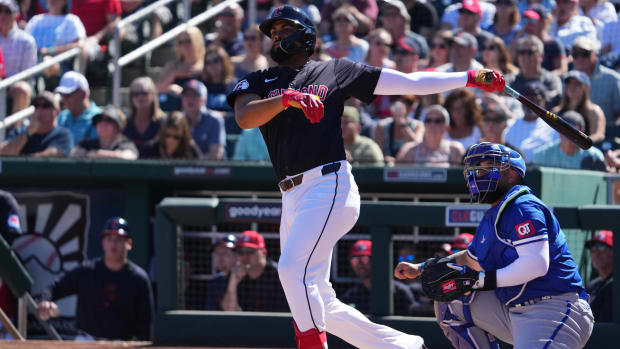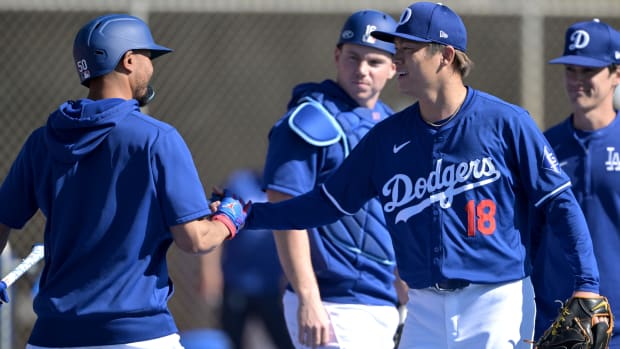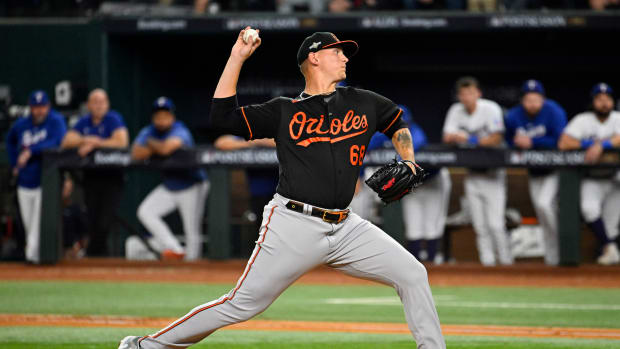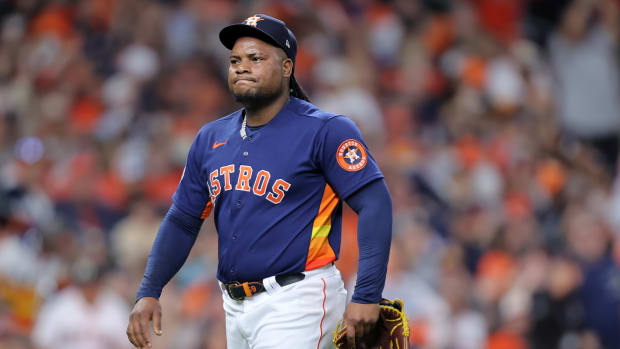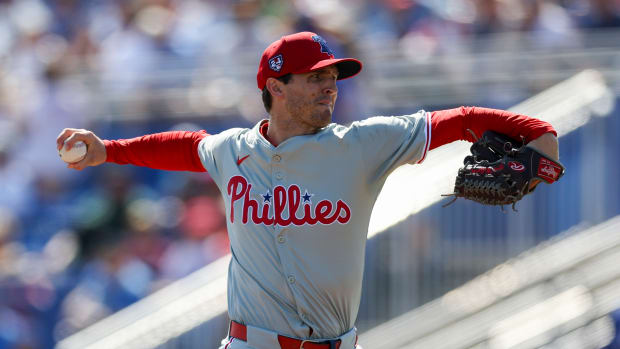Martin's journey: from appliance warehouse to Yankees
NEW YORK (AP) Chris Martin was as far from the bright lights of the major leagues as could be five years ago, working in a warehouse off Interstate 20 in Arlington, Texas, pushing 650-pound Sub-Zero refrigerators onto dollies for deliveries.
Drafted twice but never signed, he hurt his arm while pitching for a community college, didn't respond to surgery and finished school without a degree.
But at least he was down to one job.
He worked his own unique day-night doubleheader for a stretch, from 6 a.m. to 2 p.m. in the lawn-and-garden section at Lowe's Home Improvement Warehouse and from 5:30-11 p.m. loading 53-foot trailers for UPS at Dallas/Fort Worth International Airport.
Not anymore.
Come Feb. 21, the 28-year-old will be wearing No. 61 for the New York Yankees at spring training, a throwback to an era a half-century ago when all but stars worked odd jobs to make ends meet.
''Oh man, I'm pumped. I'm ready to go. Wish it started today,'' the 6-foot-8 right-hander said.
Martin had given up on a baseball career in 2008, when he wasn't able to make a single toss without sharp pain.
In a sport filled with players on the field nearly year-round since their early teens, Martin didn't pitch in a game from the fall of 2005 until the summer of 2010. But serendipity and perseverance intervened.
An unexpected encounter in a bar with a high school buddy set off a chain of events that started with a fortuitous game of catch and led to a tryout at his own expense, stops with six minor league teams and his major league debut with Colorado last April. The Yankees purchased him last month for $75,000.
''It's just an amazing story, how a guy like this completely gets lost in the shuffle,'' said Pete Incaviglia, the former slugger who signed Martin to his first professional contract with the Grand Prairie Airhogs, an independent team in Texas.
A 2004 graduate of Arlington High School, Martin was drafted by Detroit in the 18th round with the 523rd pick. He chose to attend McLennan Community College in Waco, and stayed there when Colorado drafted him in the 21st round in June 2005.
Martin, however, hurt his shoulder in a game at Navarro Junior College that fall. He tried rest and rehab at the advice of Dr. Keith Meister, the Texas Rangers' team physician, but that didn't help. Meister operated in August 2007 to repair the labrum and release the shoulder capsule.
When he healed, Martin tried out for the Fort Worth Cats of United League Baseball.
''The shoulder still felt the same, so that's when I decided to hang it up,'' Martin said.
He went to work at Lowe's. Plus, he added the night job, primarily for UPS's health insurance.
That was his life for about a year, until he went to J. Gilligan's Bar & Grill and came across Jordan Bostick, who was a year behind him in high school. Bostick was a warehouse manager at Texas Appliance in Arlington, and he suggested Martin work for him.
''I don't know about how the money compared, but it definitely was a lot better than doing double duty, that's for sure,'' Bostick recalled.
One day in June 2010, Bostick broke out a left-handed catcher's mitt at the warehouse. Martin hadn't picked up a baseball in three years.
''I was playing slow-pitch softball,'' he said.
Martin's pitches ''busted seams and nearly took my thumb off,'' Bostick said.
Martin's shoulder, surprisingly, felt OK.
''When he was in college, he was real thin, tall and skinny. I just don't think he was as strong enough for as hard as he was throwing,'' Martin's father, Matt, said. ''When he was working for that appliance store, he was doing a lot more physical labor, so he was getting stronger, I would have to say.''
Martin joined a friend on a men's league team, pitched a few times and remained pain free.
A series of texts and calls between former McLennan players landed Martin a tryout with Incaviglia's team.
''Out of the corner of my eye, I see my bullpen catcher waving me over, and so I go over there and kind of stand behind the catcher and look at my gun: 94, 94, 95,'' Incaviglia said.
Martin signed for $800 a month and went 4-0 with a 1.95 ERA in 13 games. Incaviglia called Red Sox scout Jaymie Bane.
''I said: Just bring him to your tryout and call me and say thank you,'' Incaviglia remembered.
After the season, Bane had Martin throw for another Red Sox scout. Then Martin went to Fort Myers with his dad and pitched batting practice at Boston's minor league complex for Bane and Red Sox officials Allard Baird and Jared Porter. Martin's father still has a copy of a check the Red Sox sent reimbursing Chris' airfare and a room at the Ramada: $464.52.
After a few pitches, Baird told Bane to stand behind Martin and shift him toward the third-base side of the pitching rubber.
''The moment he did it, it came out, and you could see the difference,'' Bane said.
Boston asked Martin to come back two days later for a bullpen session, to make sure his arm bounced back. The Red Sox signed him for $1,100 a month.
Martin pitched at Class A with Greenville and Salem, Double-A with Portland, Maine, and Triple-A with Pawtucket. He was traded to the Rockies in December 2013 and sent to Colorado Springs.
Martin made his big league debut last April 26 at Dodger Stadium, and his first three batters were Adrian Gonzalez, Matt Kemp and Andre Ethier - totaling 547 homers at the time. He had a 6.89 ERA in 16 big league games over 43 days during two callups and finally earned bigger money: $168,256.
The Yankees like his fastball, which averages 95 mph. And Martin's height - he wears a size 50 jersey.
When Martin struggles in games, he thinks about his long journey to the big leagues.
''It reminds me how fast baseball can be taken away and it makes me not take things for granted anymore,'' he said. ''I don't want to go back to where I was.''






























